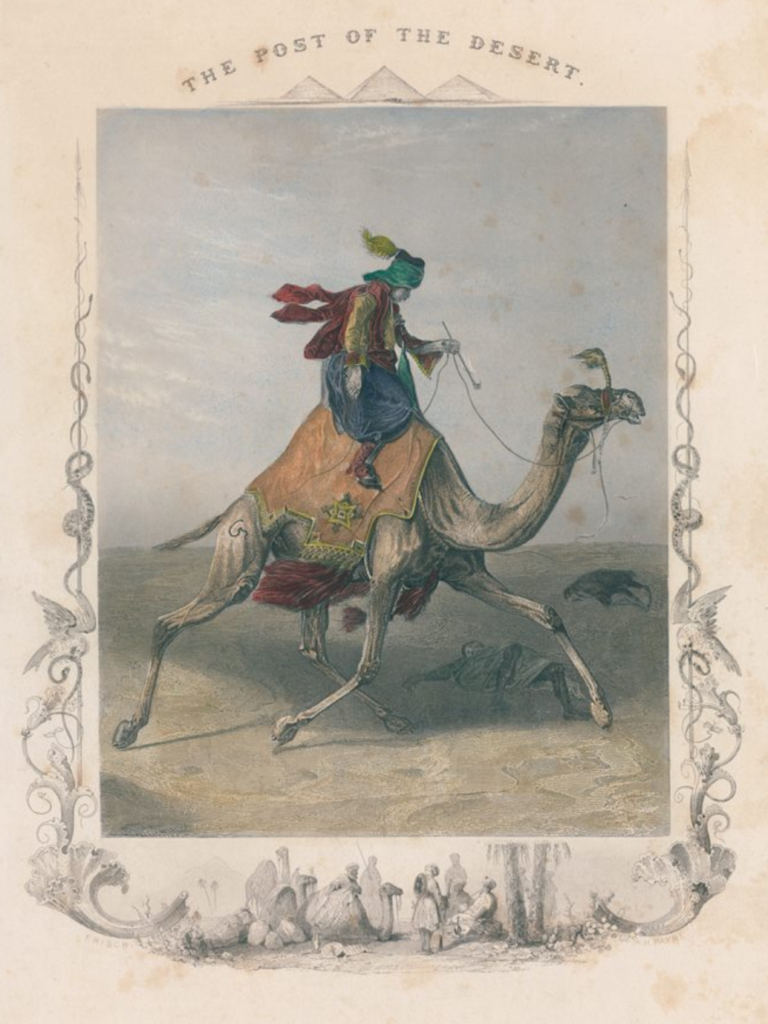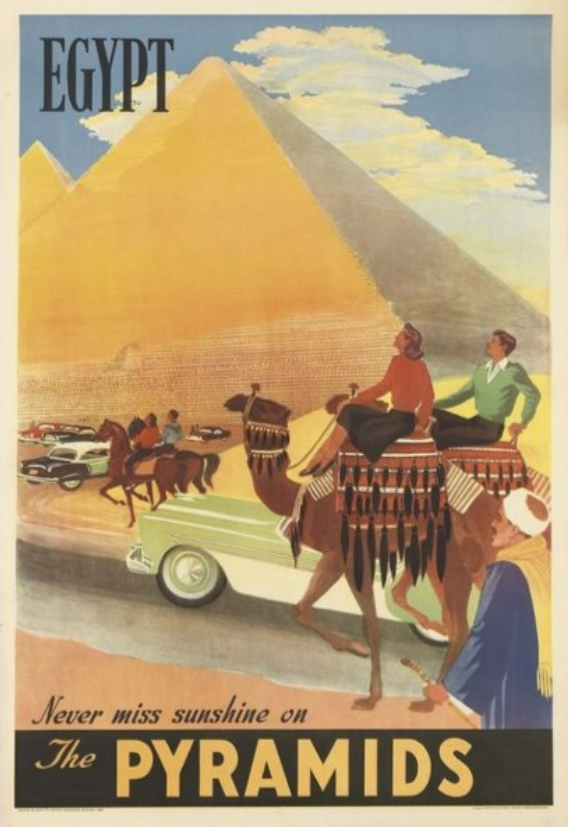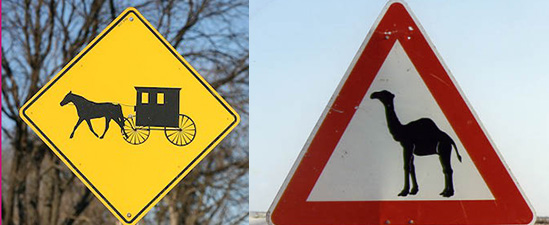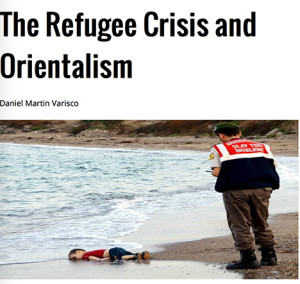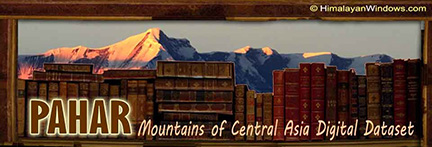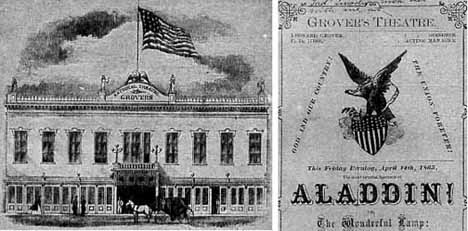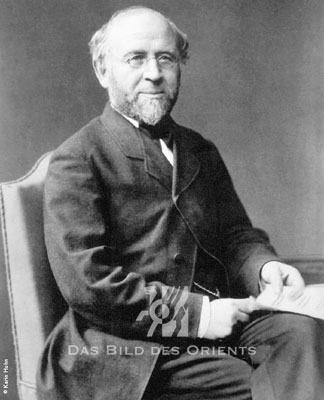The image above, a drawing from the 1850s, epitomizes how the camel has been imagined for everyone in America, the West and just about everywhere outside the area where camels were important domestic animals. A turbaned man astride a galloping camel: Orientalism has ruled the day. And when Westerners visited the Middle East, riding a camel became a touristic must-do, as in the image below:
Camels (the one-humped kind) do exist outside the Middle East, including the Old West of the United States and Australia. But take a look at the next picture of two warning signs. One is from Qatar, where camels sometimes cross a rural road, and the other is from the Amish country in Ohio. The Amish are a group who came to America to escape persecution in Europe and maintain an old lifestyle without electricity or automobiles. I used to visit the Amish parts of central Ohio when I was a child and it was always a game to see who could spot the first Amish buggy. So, I would have been quite shocked to see a camel warning in Ohio.
But today it may be necessary, since the Amish are now raising camels for milk, an idea sparked by a Saudi that led to a company, Desert Farms, being formed in 2015. The prices are a bit out of reach at $18 for 16 ounces of fresh camel milk or $72 for 200 grams of powdered camel milk. But as the site exclaims, camel milk is halal and even if not really kosher, it can be at times.

So if you can afford it or find it (and good luck at that), drink up.
